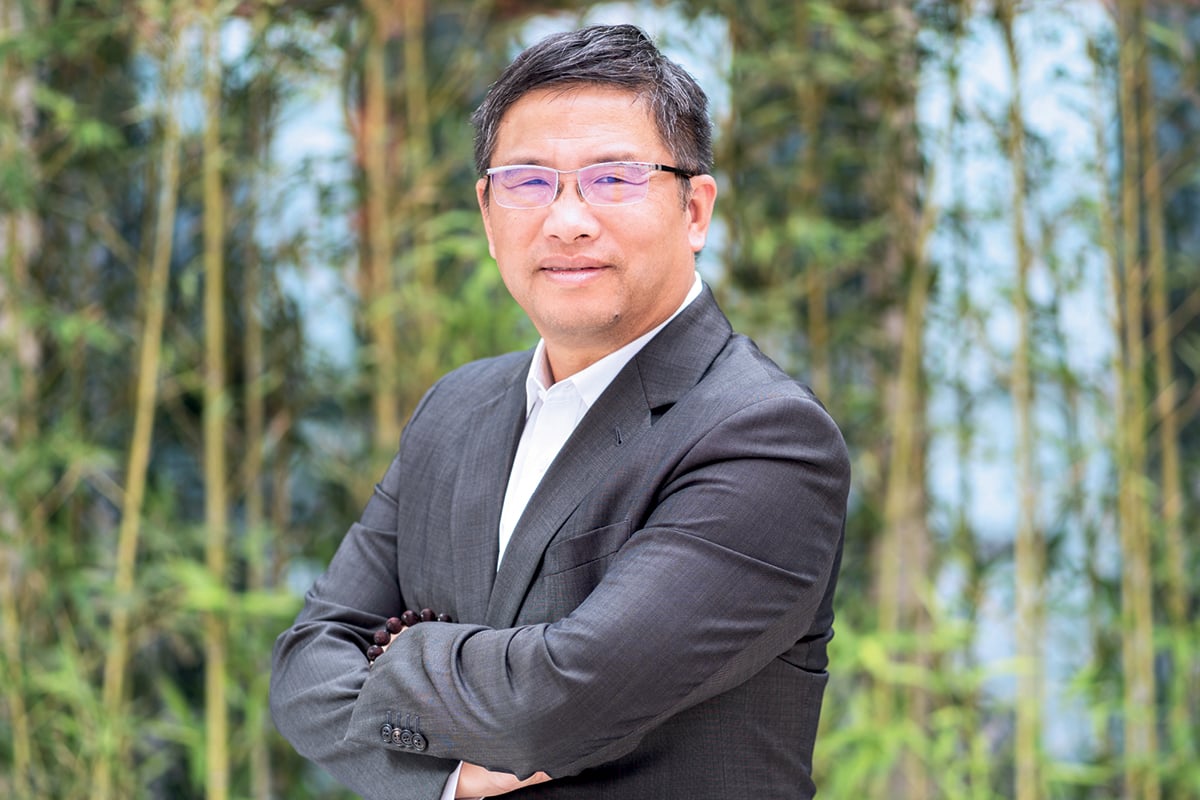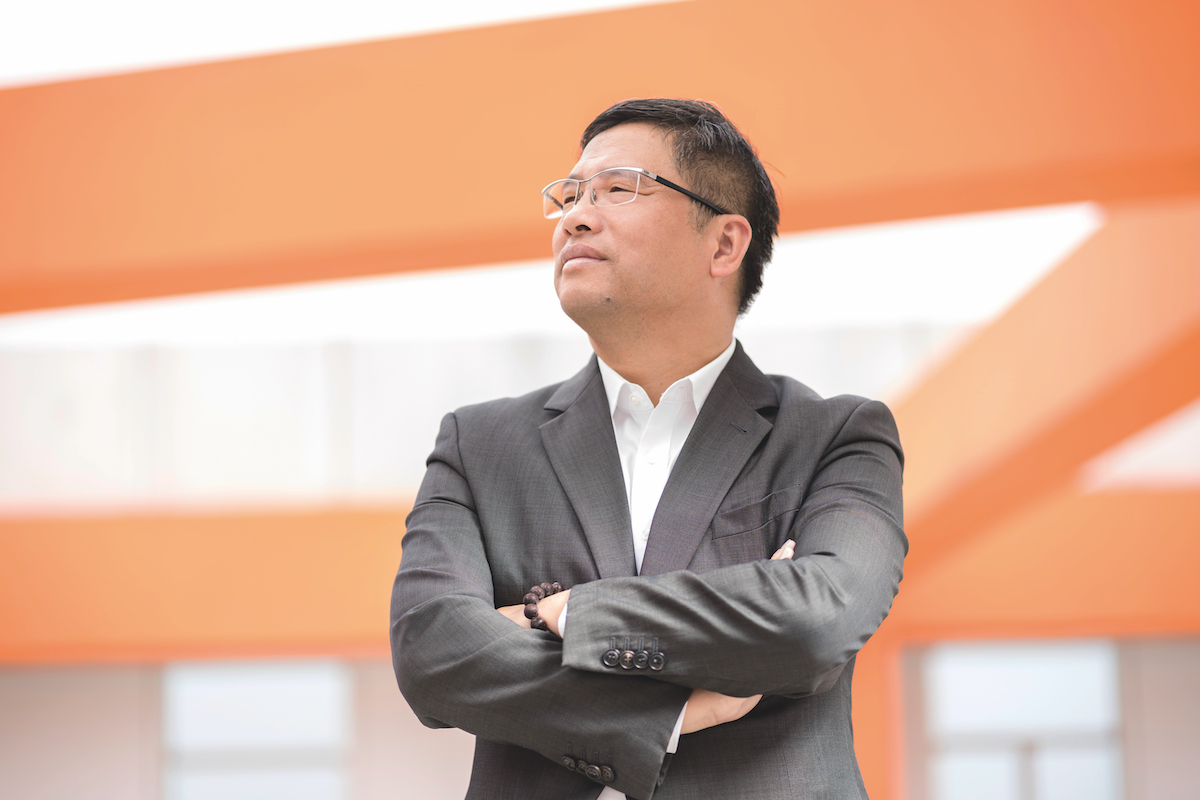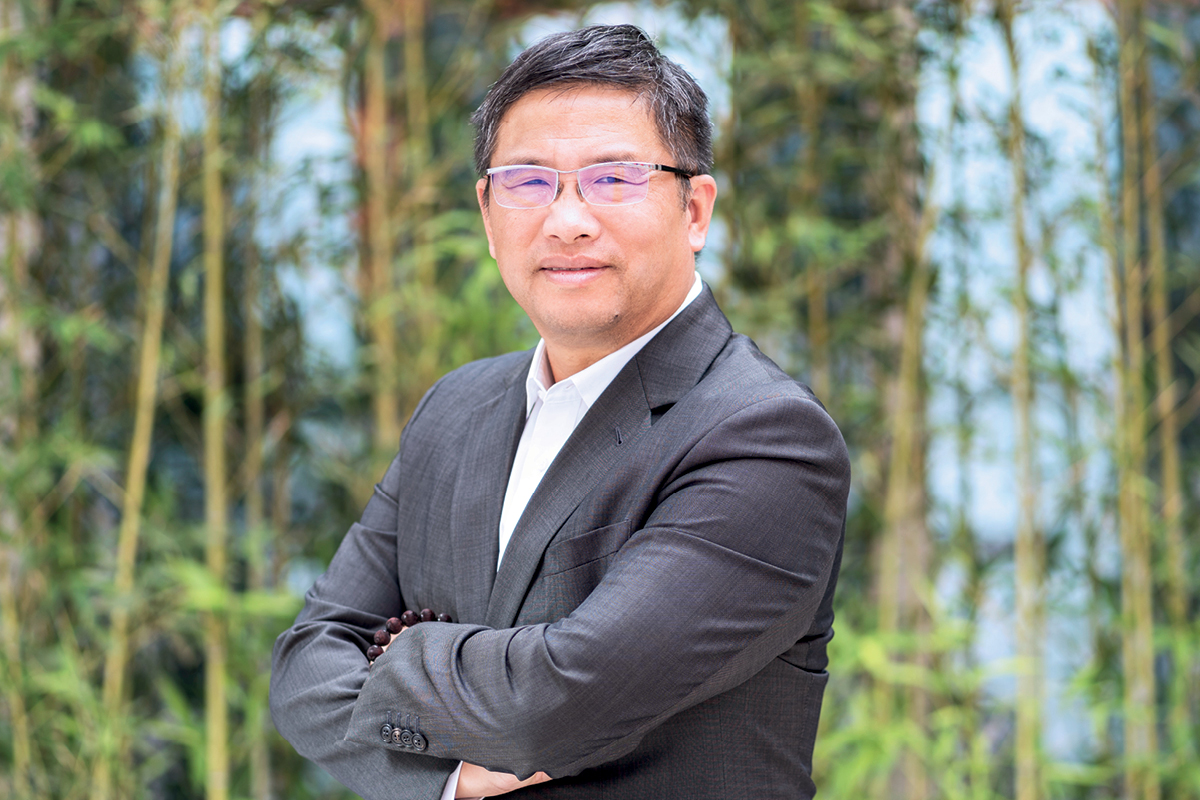Less than 10 years ago, expectant mothers requiring prenatal testing for chromosomal abnormalities underwent invasive testing. Although this carried a small chance of miscarriage, there were no alternatives. Today, thanks to groundbreaking innovations in genomics, there are simple and safer non-invasive options.

And what’s even more exciting is that prenatal care is only one of the many fields in which this game-changing technology is making a difference. The vision for Illumina, a global leader in genomics, is ‘Unlocking the power of the genome’.
For Li Qing, Illumina Vice President and General Manager, Greater China, the scale of opportunity in China is exciting, as is the difference it can make in patients’ lives.
A genome is the complete set of DNA and genetic information of an organism. Genomics is a branch of biotechnology that examines genomes and the connection of genetic and environmental factors in disease.
Genomic sequencing giant Illumina is a leading developer, manufacturer and marketeer of tools and systems for large-scale analysis of genetic variation and function. Its portfolio of innovative next generation sequencing (NGS) and array of technologies are creating groundbreaking advancements in life-science research and molecular diagnostics globally.
In 2019, Illumina was ranked 35th in Fortune’s annual Change the World List for its rapid advancement of genomic sequencing and considerable improvements in cost efficiencies.
In fact, one of the priorities for the company is to ‘democratise’ access to genomics and make it available to more people around the world. Innovation is driving costs down and making the technology simpler to use. With an initial cost of US$2.7 billion to sequence a complete genome in 2003 to prices ranging from US$200 today, Illumina is making NGS technology accessible for all.
New frontiers
With China emerging as a major genomics market, for Illumina it represents their second largest genomics market behind the US and of strategic significance. The demand in China for consumable genome sequencing products has been driven by an increase in consumer appetite for DNA-reading technology.
In 2018, Illumina’s MiSeqDx Sequencing System received approval from the China National Drug Administration (CNDA), opening the way for Illumina’s first CNDA-cleared NGS system in China. This Illumina-branded clinical diagnosis product allows thousands of hospitals in China to access the technology, and means potentially millions of patients can benefit in cancer diagnostics, genetic diseases, microbiology and non-invasive prenatal testing (NIPT).
In 2019, Qing joined the company from GE Healthcare, attracted by Illumina’s vision and the pace at which Illumina launches products to the market. Qing’s role is focused on continuing to accelerate business growth and taking Illumina to the next level in the Asia–Pacific region.
“China is considered an attractive market for growth and is receptive to new technology and change,” Qing states. He suggests there are a number of reasons for this.
“We’re seeing an increasing middle-class population in China that is different from previous generations. As a result of urbanisation and GDP growth the middle-class population is younger and more progressive with technology,” he explains. “There is very stable and supportive government leadership with healthcare spending increasing year-on-year.
“We collaborate with government bodies and NGOs to promote the application of genomes. The government wants to ensure that new technology is adopted and put into use quickly to provide the best treatment options for patients,” he adds.
“We have an exciting new generation of leadership growing in China – we’re seeing well-educated talent who have received overseas training and understand global trends. These people are now working for companies like Illumina and driving change for the greater good of hospitals and patients.”

Doing it differently
So what makes Illumina stand out from the rest of the market and shine in this rapidly growing sector? “We have a very stable product,” Qing says. “We focus on both the sequencing quality and on keeping costs down to make the technology more affordable. And Illumina is very R&D based; customers always expect there will be something new in our pipeline.
“Our business model is very unique,” he adds. “From the beginning, we established a partnership ecosystem. We not only use our own market power, but also leverage that of our partners to ensure that NGS technology is broadly shared and adopted.
“From the beginning we established a partnership ecosystem.”
“Our product and partnerships mean we are very different from traditional technology companies. Although Illumina is the expert on sequencing, we don’t have the full product solution, so we need to align with partners who do. Sequencing is only one step of the NGS process. Combine our sequencing platform technology and our partners’ commercialised laboratory prep products and bioinformatic expertise and we jointly create what we call the ‘total solution’.
“The success of the system is the alignment of the three areas combined. Our focus is to work alongside our partners and customers to maximise the number of patients with access to this technology. Our productive ecosystem is built on competitive partnerships. It’s an inclusive strategy that helps build the capabilities of the overall industry.”
Illumina’s major Chinese collaborative partners include Berry Genomics for NIPT, Novogene for clinical research and Burning Rock for oncology and supply chain partner HTDK Group.
Developing a manufacturing site in China is a focus for Qing with Chinese manufacturing currently undertaken in Singapore and the US. The company is now looking for Chinese partners in the manufacturing sector to facilitate the local operation and supply chain system.
With ethical, legal and social implications surrounding the use of genomics, Illumina’s Ethics Advisory Board advises on ethical issues involving Illumina’s products, services and processes from a research and clinical perspective. It also addresses emerging ethical issues, policies and regulations facing the genomic industry. “We’re committed to using genomics ethically, with integrity,” Qing states. “A patient’s privacy must be respected.”
People power
Qing is very performance driven and a sharpshooter. “I like to make things as simple as possible,” he laughs. “But I think that’s my strength. Because of my strong sales background, I like to roll up my sleeves and spend time with the customers and first-line managers. As a company, we’re not purely driven by short-term financial results, instead we’re creating long-term success and establishing strong relationships.
“Success has two dimensions for me – first is business growth, but just as important is developing talent so they can contribute to the industry. Both our product and people are my priorities.
“Our team is very open and communicative. They like learning things and they’re very loyal to the company. We have a very family-like culture.
“Illumina is highly committed to making people’s lives better and we make ourselves accountable for this.”
“Illumina is highly committed to making people’s lives better and we make ourselves accountable for this. We want to continue this in China and we’re closely collaborating with the local government to build a better healthcare system.
“We’re excited that in the clinical world we’re seeing more physicians understanding our technology and applying it in their daily practice. It’s encouraging to see the medical industry actively exploring genomic advances and leveraging the technology to improve patient treatment quality,” Qing says.
In its relatively short 21-year history, Illumina’s technology and product portfolio have experienced an extraordinary evolution, and now under Qing’s leadership in China, Illumina will stamp its mark on this important strategic market. And while innovation is literally part of Illumina’s DNA, the company’s true DNA is focused on bringing this important technology to the world and making a difference in people’s lives.



